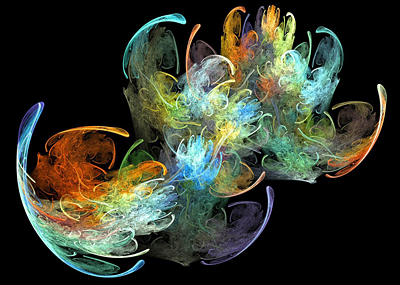The fact that people are incarcerated in the US for thinking & talking about suicide implies that Americans do not really believe in freedom of thought & speech- in addition to rejecting an individual’s right to commit suicide. In contrast, the assertion that people have a right to not only think about but to commit suicide has been made by many people who believe in individual freedom.
In Death, Amy Winehouse Becomes Most Recent Member of 27 Club
 Amy Winehouse’s sad, and yet not unexpected, death this Saturday makes her the latest inductee to the mysterious “Twenty-Sevens,” an eerie post-mortem “club” of some of the most influential rock artists of all time, all of whom died, perhaps not coincidentally, at the ripe of age 27 — just before adulthood.
Amy Winehouse’s sad, and yet not unexpected, death this Saturday makes her the latest inductee to the mysterious “Twenty-Sevens,” an eerie post-mortem “club” of some of the most influential rock artists of all time, all of whom died, perhaps not coincidentally, at the ripe of age 27 — just before adulthood.Alongside Kurt Cobain, Janis Joplin and Jimi Hendrix, beehive-rocking, door-knocker-earring-wearing Winehouse joins a shocking three dozen great rock-and-rollers to die at 27, the curious age at whichThe 27s: The Greatest Myth of Rock and Roll author Eric Segalstad claims more rockers have died than any other.
Like many other Twenty-Sevens, including Joplin and Jim Morrison, Winehouse is suspected to have died from a drug overdose. Despite her hit “Rehab,” in which Winehouse famously sang, “They tried to make me go to rehab, I said NO, NO, NO,” Winehouse had undergone several stints in rehab for an admitted heroin addiction.
While Amy Winehouse is the newest member of this most simultaneously revered and abhorred club, her induction into the peculiar group has rock fans like myself wondering once again if the Twenty-Sevens are, in fact, no coincidence. Thirty, the stepping-stone to adulthood, where creativity and good music often go to die, is, after all, just around the corner. Perhaps early death saved our greatest musicians from the mediocrity (or at least minimized rebellion) that for rock stars often accompanies aging.
Basic numerology (the most complicated of which is often applied to the Twenty-Sevens) suggests this may be the case. To start, numerologists attribute the number 27 to persons of the highest wisdom and enlightenment – an argument few die-hard fans may disagree with. According to author Alfred Weysen, the number 27 symbolizes light in darkness. What’s more, biblical numerology relates the number 27 to the expectancy of divine approval or redemption. Did talent, wisdom and divine redemption lead these stars to die at their peaks? We do, after all, like our rock stars gritty, druggy, edgy, and young. And their dangerous lifestyles and rebellious music offers so much to their fans that, as strange as it may sound, it seems they may have died for us – like the Jesuses of rock and roll.
For rebellious teens and fans to whom rock stars offer a sense of belonging and righteousness denied by our parents — and adults in general — the Twenty-Sevens never grew old enough to move away from the edge. Instead, they hurled themselves over it, and their permanent youth is (perhaps creepily) comforting, especially to those for whom rock and roll is a lone sign of hope that we are not all doomed to be dull, that the mainstream fueling our angst is not the only future.
Fascinated by the Twenty-Sevens from a young age, I remember being 14 and poring over Kurt Cobain’s diary like it was my own; being 17 and visiting the hotel where Joplin died; and now 21, I remember my own encounter with Winehouse while studying in London. Two years ago, 19 and enjoying the freedom of drinking legally in London, I was out with some friends in Camden, the punk London neighborhood where Winehouse lived, partied and was found dead this weekend, when a lucky encounter landed me at a bar where Winehouse was DJing. In another twist of fate, the bartender invited us to stay for the after-party.

by Andrew Colunga
As Winehouse stood behind the bar mixing drinks andstruggling with her balance, my friends and I excitedly introduced ourselves to the troubled star and took a few shots with her before walking home in the daylight. She was so tiny – emasculated by her huge beehive and door-knocker earrings – it was obvious she was sick. The next day, she made the cover of London tabloids for, once again, stumbling down the street intoxicated.
Winehouse was a rock star, and she did as rock stars do, living off excess and freedom in a daze of fame. What’s more, she died at her peak. Dying at 27 means dying a legend: to have never started to “suck,” to have never slowed down. It is to be forever young – to skip out onselling out and losing touch – to never become your parents.
For Twenty-Sevens like Cobain, who appear to have committed suicide, this argument holds particularly strong. Cobain, in his suicide note, said: “It’s better to burn out than fade away.” So were the Twenty-Sevens, consciously or otherwise, pushing themselves toward death to avoid the impending doom of adulthood? Perhaps they felt conformity and its comorbid acquaintance mediocrity, creeping up behind them. Or maybe it was the demands and chains of the record industry and fame, driving them toward dangerous addictions.
In the end, whether young death was in the stars or just a tragic coincidence of life as a rock star, Amy Winehouse will, like the other Twenty-Sevens, leave behind a legacy of youth, from which eager teens and other fans will continue to draw inspiration and support.

